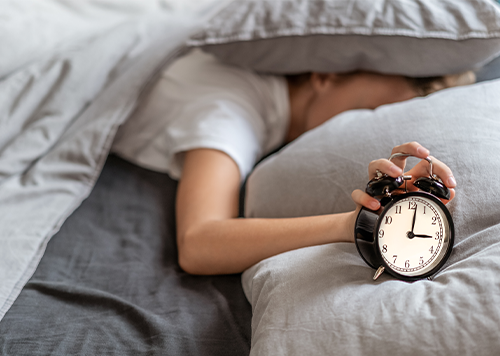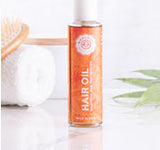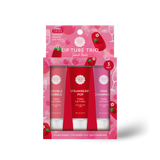Natural Tips to Manage Stress and Insomnia

Restorative sleep is one of the pillars of good health. Unfortunately, most of us are familiar with the grogginess and poor focus that comes the day after a poor night's sleep.
Chronic stress triggers insomnia and is one of the many reasons stress impacts your mental and physical well-being.
Why is sleep important, and how much do we need?
Experts suggest that 7-9 hours of restorative sleep each night is optimal rest and repair. But most people aren't getting anywhere near this amount due to work demands, young children, and poor sleep environments.
Chronically poor sleep can be devastating for overall well-being. It ruins your exercise performance, increases pain, and causes poor focus and mood swings1. Interestingly, chronic sleep loss also contributes to chronic disease and weight gain2.
So, what can you do to nip stress and insomnia in the bed?
5 natural tips for better sleep
Here is our guide to reducing stress and getting deeper sleep every night:
1. Exercise regularly
Regular exercise is one of the best ways to reduce stress, improve sleep, and support your mental and physical health. Exercise puts you in a better mental state by helping your body release feel-good chemicals3, reduces stress4, and regulates your body clock. It's like a natural pharmacy for mind and body!
Just 30 minutes of moderate exercise 5 days a week is ideal for better sleep. We suggest doing something you enjoy - like dancing, walking, hiking, lifting weights, or yoga.
2. Try an essential oil pillow spray
Essential oils are your secret weapon for creating calm and encouraging deep sleep!
These potent plant oils carry powerful aromas that relax your mind and body and promote sleep. Some of our favorites are lavender, sandalwood, clary sage, ylang ylang, Roman chamomile, rosemary, and cedarwood essential oils.
An essential oil pillow spray is an easy way to enjoy the relaxing benefits of aromatherapy and encourage restful sleep. Combine 1 cup water, ¼ cup pure vodka, 15 drops of Roman chamomile oil, 10 drops of lavender oil, and 5 drops of ylang ylang oil in a spray bottle. Shake well before misting onto your bedding and around your room before you get into bed.
3. Make your bedroom a dark, quiet, and comfortable sanctuary
Your bedroom should be a quiet, dark, comfortable sanctuary that helps you relax and drift off to dreamland. Unfortunately, artificial light from screens, indoor lighting, and streetlights disrupts quality sleep. The bright blue light tells your brain it's daytime, slowing the release of the sleep hormone melatonin and making you feel alert5
.Use the following strategies in your bedroom to enhance your sleep:
● Invest in blackout curtains
● Remove all screens and LED lights from your bedroom
● Wear a comfortable eye mask to reduce your nighttime light exposure
● Ensure you have a good mattress and pillows and soft sheets and blankets
● Wear earplugs if necessary to block out noise from the environment
4. Do breathing exercises before bed
Slow belly breathing through your nose helps you fall asleep at night. It stimulates your vagus nerve and triggers your parasympathetic nervous system - the "rest-and-digest" state.
Try this 1:2 breathing technique for 5-10 minutes before bed:
● Inhale slowly through your nose low into your belly for a count of 3
● Take a slight pause at the top
● Breathe out slowly through your nose for a count of 6
● Repeat
With each exhale, focus on progressively relaxing all your muscles.
5. Cool your body down
On hot and humid nights, it can feel impossible to fall asleep! Your body temperature naturally drops as you fall asleep - being hot halts this process.
A simple way to cool your body down is to freeze a pair of socks for an hour before bedtime. Wear them to bed to help you drift off. You can also freeze a microwavable wheat bag for 1-2 hours and place it under the covers for 10 minutes to cool the sleep environment down.
Final thoughts
Simple lifestyle changes can make a big difference to your sleep quality.
Let us know; which are your favorite essential oils for sleep?
Resources
1. https://www.ncbi.nlm.nih.gov/pmc/articles/PMC5449130/
2. https://pubmed.ncbi.nlm.nih.gov/25861266/
3. https://pubmed.ncbi.nlm.nih.gov/1553453/
4. https://www.ncbi.nlm.nih.gov/pmc/articles/PMC4013452/
5. https://pubmed.ncbi.nlm.nih.gov/30311830/
Suggested Posts
Tips and Tricks for Dealing with Anxiety and Panic Attacks
Racing heart? Fearful thoughts? Chest tightness? These are all hallmarks of anxiety and panic disorder. If you're struggling with debili...
Focus on: Cedarwood Essential Oil
Are you looking for a warming essential oil with a woody aroma and grounding properties? Woolzies Cedarwood Essential Oil has a beautifu...




